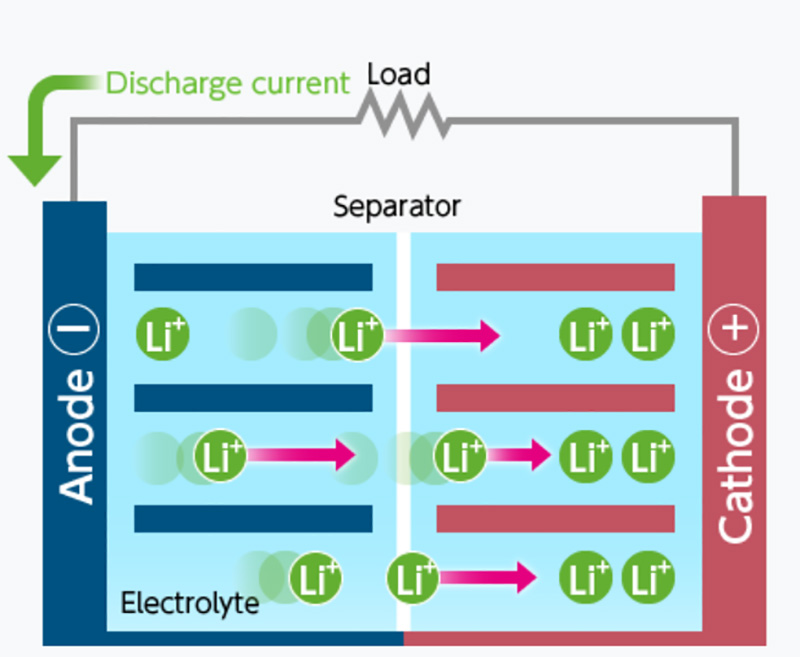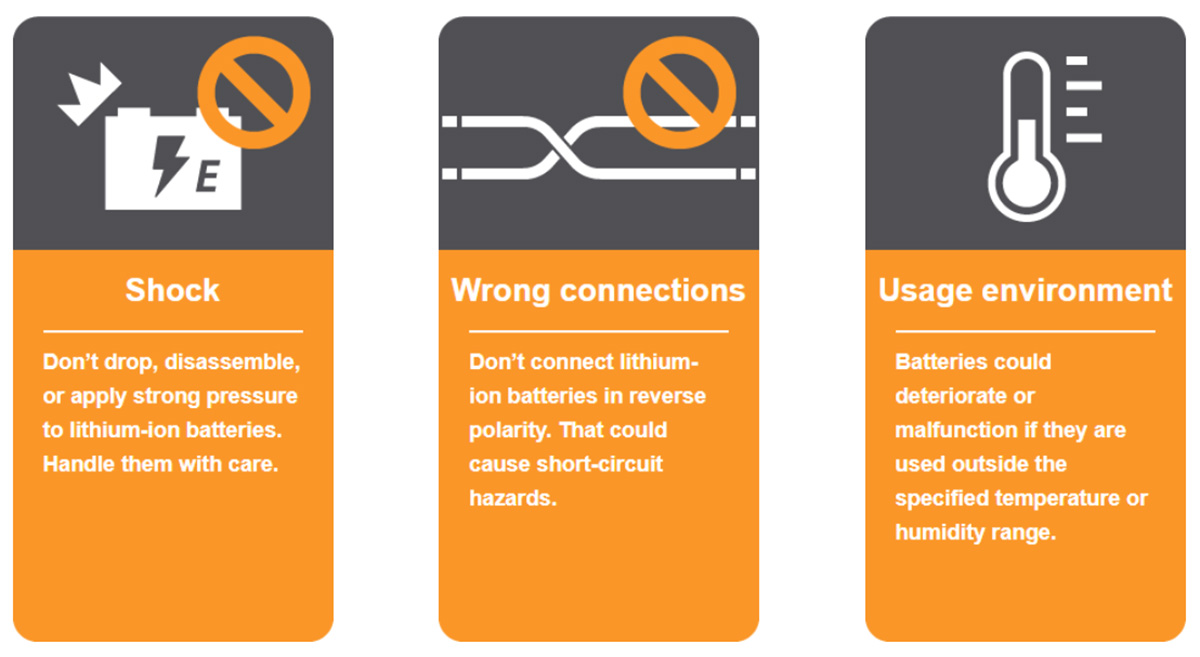What is a lithium-ion battery? What features does it have?
A lithium-ion battery is a type of rechargeable battery that is charged and discharged by lithium ions moving between the negative (anode) and positive (cathode) electrodes. (Generally, batteries that can be charged and discharged repeatedly are called secondary batteries, whereas disposable batteries are called primary batteries.) Because lithium-ion batteries are suitable for storing high-capacity power, they are used in a wide range of applications, including consumer electronics such as smartphones and PCs, industrial robots, production equipment and automobiles.
How do lithium-ion batteries store energy?
lithium-ion battery is composed of 1) the anode and the cathode; 2) a separator between the two electrodes; and 3) an electrolyte that fills the remaining space of the battery. The anode and cathode are capable of storing lithium ions. Energy is stored and released as lithium ions travel between these electrodes through the electrolyte.

When storing energy (i.e., during charging)
The charger passes current to the battery.
Lithium ions move from the cathode to the anode through the electrolyte.
The battery is charged by a potential difference between the two electrodes.
When using energy (i.e., during discharging)
A discharge circuit is formed between the anode and the cathode.
Lithium ions stored in the anode move to the cathode.
Energy is used.

How do lithium-ion batteries compare with lead-acid ones?
Generally, lithium-ion batteries are lighter and can be charged more rapidly than lead-acid batteries. And lithium-ion batteries are more environmentally friendly since they don't contain any substance with a high environmental load.
Are lithium-ion batteries safe?
While lithium-ion batteries can store more energy than other types of batteries, they could smoke or ignite if you use them in the wrong way. For example, lithium-ion batteries have been reported to have failed in smartphones, PCs, and airplanes. Although most lithium-ion batteries are equipped with safety devices, it is important to know how to use them properly.
Are there any dos and don'ts to be followed to prevent the failure of lithium-ion batteries?
Yes, there are. Lithium-ion batteries are vulnerable to overcharging, overdischarging, heat, shock, and other external damages. So, they should be managed properly. The followings are the points to be avoided.


Figuratively speaking, the charge/discharge cycles of batteries can be compared to the work days and holidays for human beings. Both too much work and too much rest are bad for you.
Work-life balance is attracting a lot of attention in the world of batteries, too. Personally, I prefer loooooong vacations.
More information, pls contact teda battery.com
Post time: Jun-26-2022

